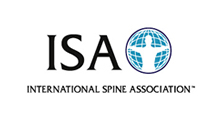
Spinecare Topics
Exercise During Pregnancy
Abdominal muscle strength, endurance, tone and coordinated activity are all important factors in controlling and preventing back pain. During pregnancy the abdominal muscles stretch to accommodate the increasing size of the fetus and shifting pelvic contents. This progressive stretch results in a reduction of strength and muscle tone, in turn limiting the ability of these muscles to stabilize the low back.
Unfortunately, it can take a considerable period of time following delivery for the pelvic and abdominal muscles to regain their strength and coordination. Some of the back complaints experienced by women following delivery are attributed to the delayed return of core muscle and abdominal strength. Surgical procedures such as cesarean section and episiotomy can increase the period of abdominal weakness, deconditioning and reduced spinal stability after delivery.
There are pre-pregnancy exercise classes offered by certified or trained professionals. Most exercise programs need to be adapted or modified during pregnancy. Do not start any exercise program without the approval of your attending obstetrician, midwife, or health care provider.
It is important to use common sense when participating in any exercise regimen. If you experience abdominal discomfort or any other unusual signs or symptoms while performing exercises, stop immediately and call your healthcare provider.
















